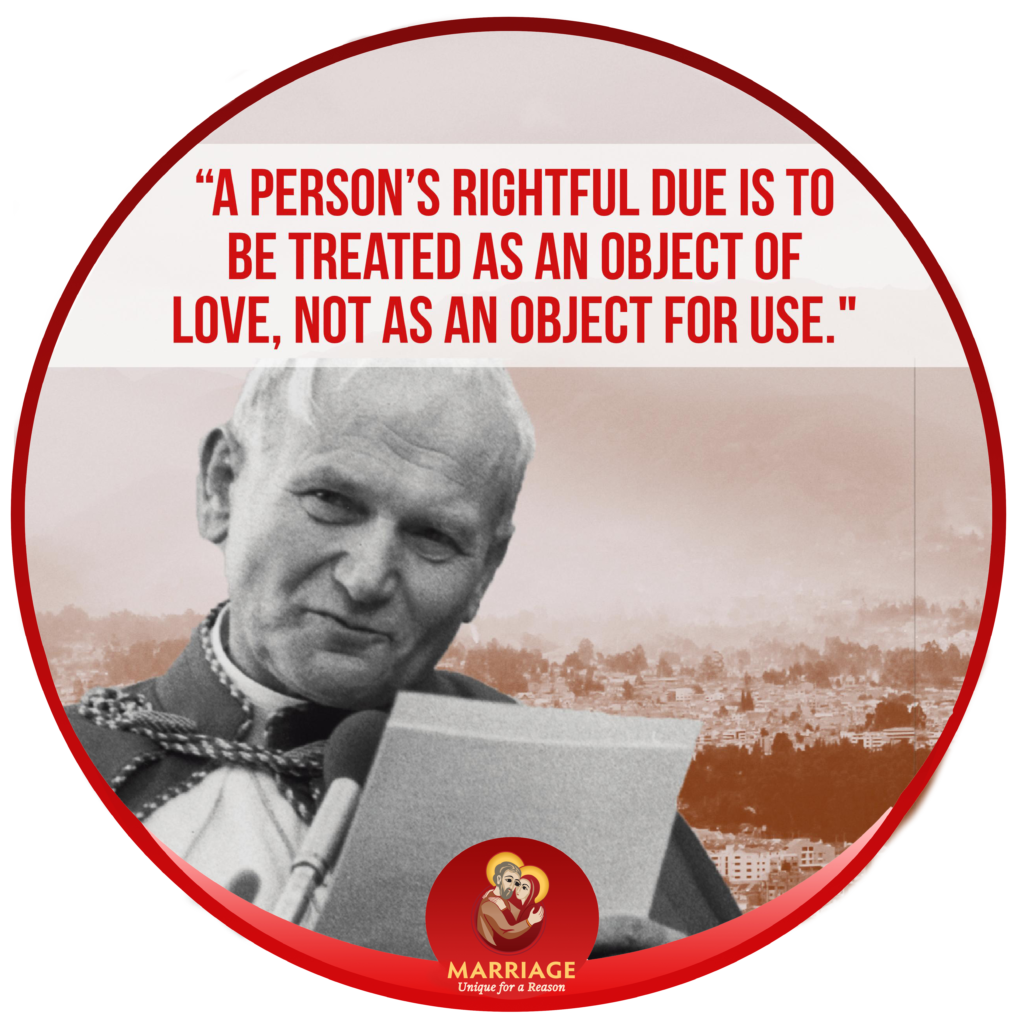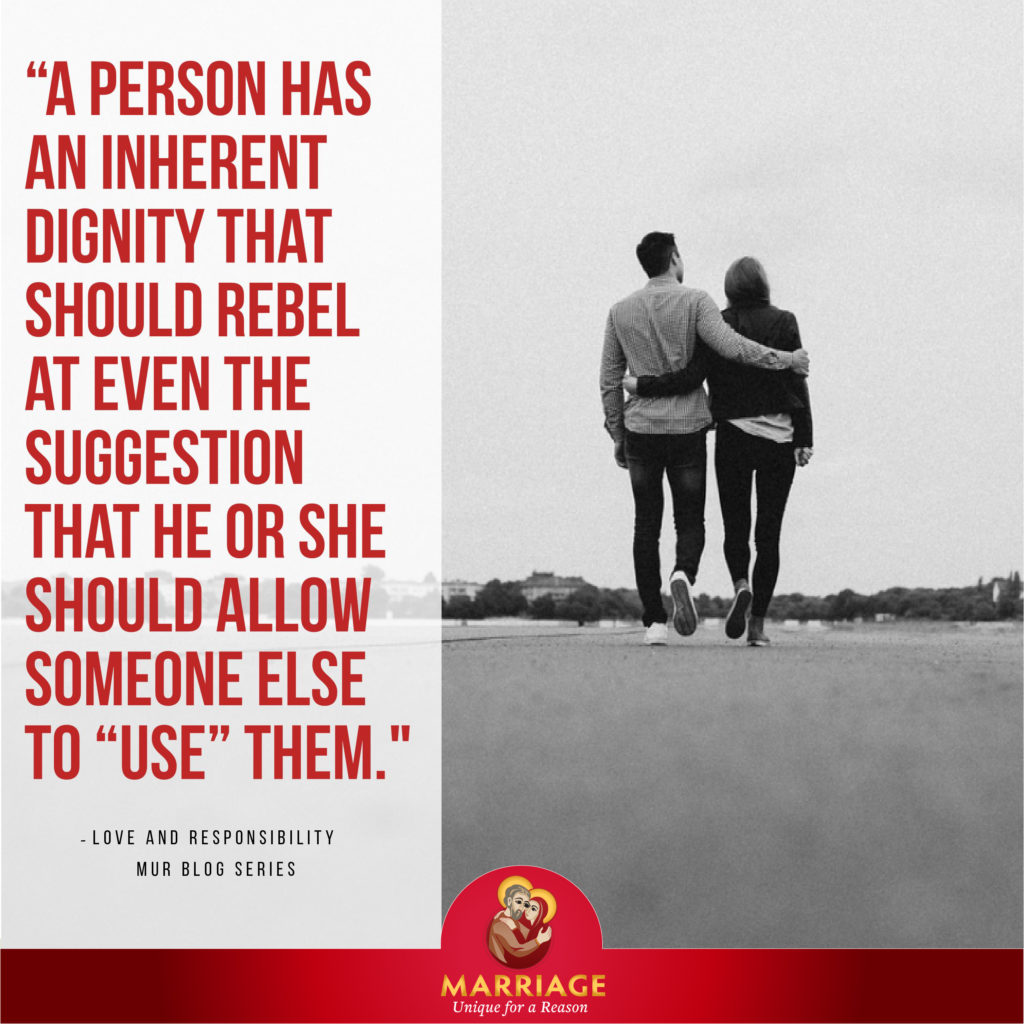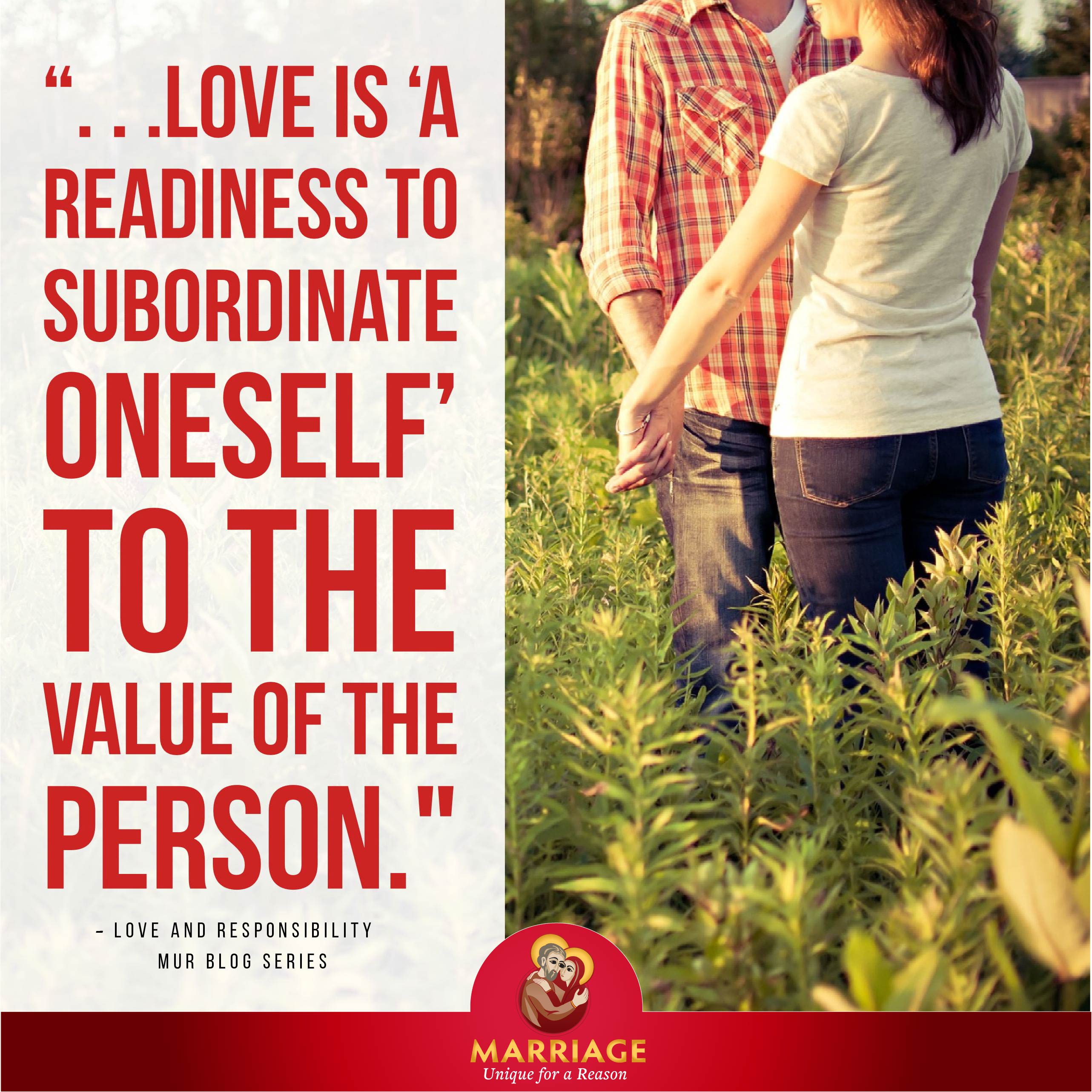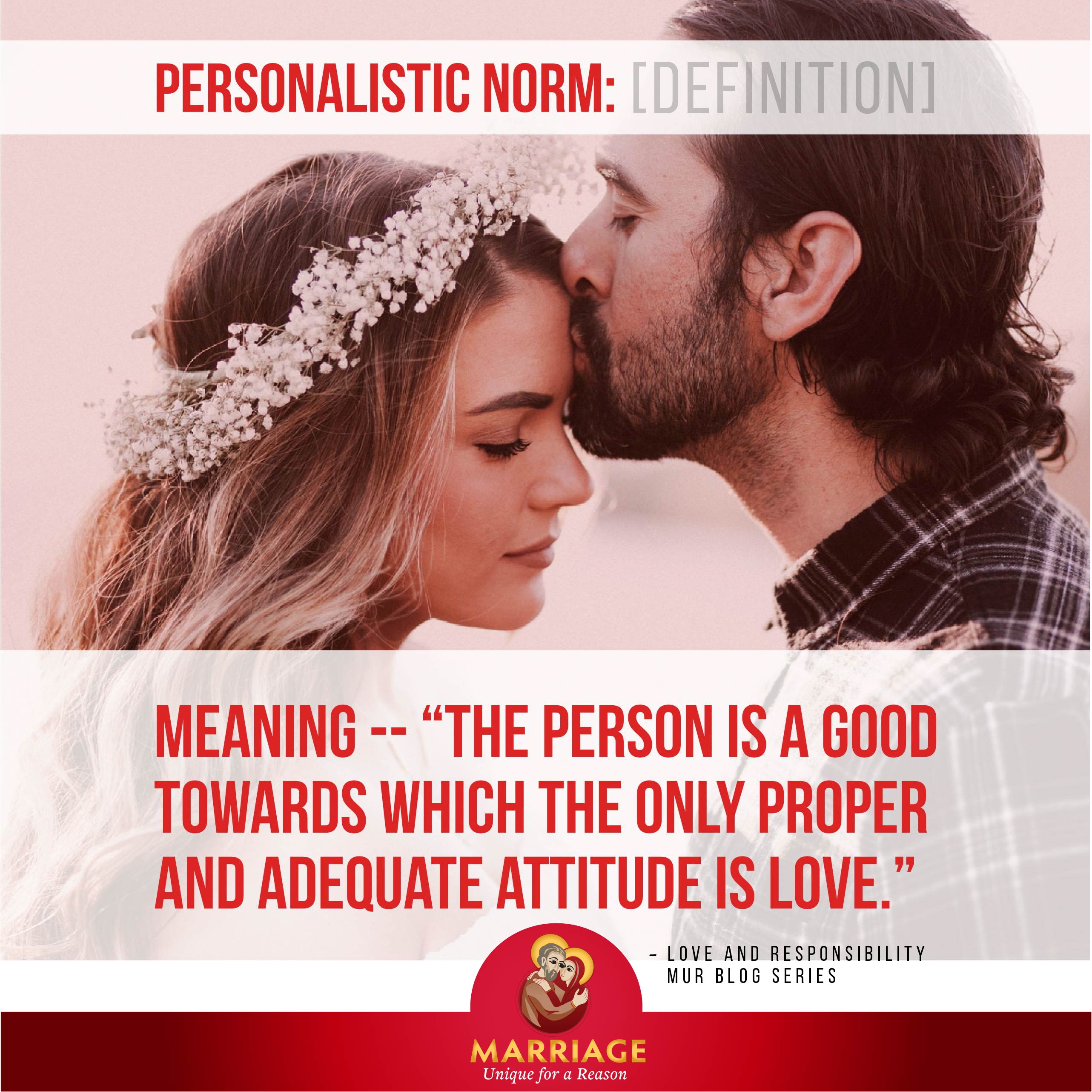Between ‘Use’ and ‘Love’:
The first distinction that Wojtyla makes in Love and Responsibility, between “use” and “love,” is one that we understand intuitively. No one wants to be used; It’s a terrible feeling! We commonly learn that pretty early on in life—maybe at the  playground, or at a friend’s house—when we realize that the other kid only wants to play with us because we have the latest gadget that their parents won’t get for them. That’s such a small example, but these are real lessons in whether another person likes us for ourselves or only likes us for what we do for them.
playground, or at a friend’s house—when we realize that the other kid only wants to play with us because we have the latest gadget that their parents won’t get for them. That’s such a small example, but these are real lessons in whether another person likes us for ourselves or only likes us for what we do for them.
We all know that people can be used by others for sexual pleasure. This is not okay, even if the person consents to being used (such as in prostitution). A person has an inherent dignity that should rebel at even the suggestion that he or she should allow someone else to “use” them. But early childhood wounds, insecurity, or other factors may dull a person’s sense of how he or she deserves to be treated. In this section of Love and Responsibility, Wojtyla explains why using another person is incompatible with their dignity.
“To use means to employ some object of action as a means to an end—the specific end which the subject has in view.”[1] For example, I use a pencil to write on my calendar. The pencil is a means to the end of writing. My aim is to put something on my schedule; the pencil is just a means to accomplish that. In fact, a pen would do just as well. Chances are, I just picked up the closest tool, the closest object, that would do the job.
Karol Wojtyla’s Personalistic Norm:
When you think of it that way, it’s easy to see that a person shouldn’t be treated the same way as a pencil. Things are interchangeable, but persons aren’t. Wojtyla notes, “The sexual relationship presents more opportunities than most other activities for treating a person—sometimes even without realizing it—as an object of use.”[2] He calls us to be on guard against this tendency, which is in all of us to some extent.
There are lots of reasons why we may be tempted to treat another person as an object—as a means to our own pleasure or happiness. We may be more focused on our own feelings of loneliness or desire than on the actual person in front of us. But part of love is “a readiness to subordinate oneself” to the value of the person.[3] In other words, love means treating someone the way they deserve to be treated. If you love a person, you don’t want to use them—even if they were to mistakenly agree to be used.
So we come to what Wojtyla terms the “personalistic norm”—the way persons ought to be treated: “the person is a good towards which the only proper and adequate attitude is love.”[4] The personalistic norm is essentially the same as God’s commandment to love. You could even think of it as the Golden Rule: treat others the way you want to be treated. But again, sometimes we mistakenly forget that we are children of God and should be treated with love and respect—sometimes we settle for being treated “okay,” which means we might think treating others just “okay” is fine. Instead, it might help to think about a young child whom you love—whether yours, or one in your family—and how you want them to be treated. This can be clarifying, kind of like when you ask a teenage boy how his little sister should be treated on a date. We often are more protective of others’ hearts than our own.
To conclude: Treating the person with love (and not using them) is a step in fulfilling God’s call to love our neighbor.
[1] Wojtyla, Karol. Love and Responsibility (San Francisco: Ignatius Press, 1993), p. 25.
[2] Ibid, p. 30.
[3] Ibid, p. 31.
[4] Ibid, p. 41.


Leave a Reply